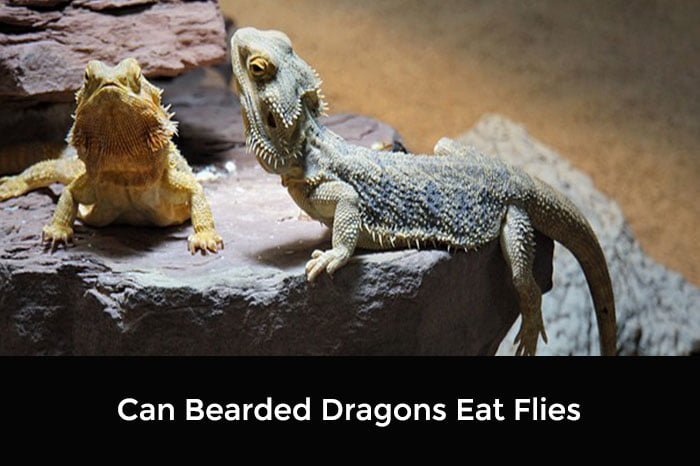Bearded dragons are fascinating reptiles known for their varied diet, which includes a mix of insects and vegetables. As a bearded dragon owner, it’s important to provide a balanced and nutritious diet for your pet. One common question that often arises is whether can bearded dragons eat lettuce. In this comprehensive guide, we will explore the potential benefits and drawbacks of feeding lettuce to bearded dragons. We will also discuss alternative greens that can be incorporated into their diet for optimal health.

The Safety of Feeding Lettuce to Bearded Dragons
Lettuce is generally safe for bearded dragons to consume, but it should be given in moderation. While lettuce does not pose any severe health risks, it does have a low nutritional content and a high water content. The high water content in lettuce can lead to digestive issues, including diarrhea, in bearded dragons. Therefore, it is important to offer lettuce as an occasional treat rather than a staple food in their diet.
The Potential Benefits of Feeding Lettuce to Bearded Dragons
Despite its low nutritional value, there are some potential benefits of feeding lettuce to bearded dragons. One of the main benefits is its low sugar content, which can help maintain a healthy weight and prevent obesity in these reptiles. Additionally, lettuce can aid in hydration, as it has a high water content. This can be particularly beneficial for bearded dragons, as they do not drink water from bowls easily. Lettuce also provides some essential vitamins and minerals, such as vitamin C, vitamin A, vitamin K, folate, calcium, and potassium, albeit in smaller quantities.

The Potential Drawbacks of Feeding Lettuce to Bearded Dragons
While there are a few benefits to feeding lettuce to bearded dragons, there are also some potential drawbacks that need to be considered. The high water content in lettuce can lead to loose stools and diarrhea in bearded dragons. This can be especially problematic for baby bearded dragons, as their digestive systems are more sensitive. Another potential drawback is the risk of vitamin A toxicity. If a bearded dragon is already receiving vitamin A supplements, feeding them lettuce on top of it can lead to an excess of vitamin A in their system. Insufficient calcium content in lettuce is another concern, as bearded dragons require adequate calcium for healthy bone development. Lastly, lettuce has a low nutritional value overall, so relying solely on lettuce as a food source can lead to malnutrition in bearded dragons.
Alternative Greens for Bearded Dragons
While lettuce can be given to bearded dragons occasionally, it is important to include other nutrient-dense greens in their diet for optimal health. Here are some alternative greens that can be safely incorporated into a bearded dragon’s diet:
1. Mustard Greens
Mustard greens are an excellent alternative to lettuce, as they provide more nutritional value. They are rich in vitamins A, C, and K, as well as calcium and potassium. However, due to their high concentration of oxalates, they should be fed sparingly, limited to once a week.
2. Collard Greens
Collard greens are another great option for bearded dragons. They are packed with vitamins A, C, and K, as well as calcium and folate. Collard greens can be included in their diet once or twice a week.
3. Kale
Kale is a nutrient powerhouse for bearded dragons. It is rich in vitamins A, C, and K, as well as calcium and potassium. However, kale also contains goitrogens, which can interfere with thyroid function. Therefore, it should be fed in moderation, once or twice a week.
4. Spinach
Spinach is a leafy green that offers a variety of nutrients, including vitamins A, C, and K, as well as iron and calcium. However, spinach also contains high levels of oxalates, which can inhibit calcium absorption. Therefore, it should be fed sparingly, limited to once a week.
5. Arugula
Arugula is a peppery leafy green that can provide some nutritional benefits to bearded dragons. It contains vitamins A, C, and K, as well as calcium and potassium. Arugula can be given to bearded dragons once or twice a week.
Feeding Guidelines for Lettuce and Alternative Greens
When including lettuce or alternative greens in a bearded dragon’s diet, it is important to follow some guidelines to ensure their health and well-being:
- Portion Size: Offer a handful of chopped or hand-torn lettuce or alternative greens at a time. Avoid overfeeding, as it can lead to digestive issues and nutrient imbalance.
- Serving Frequency: Limit the consumption of lettuce to once a week. For alternative greens, vary their intake throughout the week, ensuring a balanced diet.
- Preparation and Selection: Choose fresh, green, and healthy lettuce or alternative greens. Wash them thoroughly before serving to remove any pesticides or contaminants. Chop or tear them into small pieces to prevent choking hazards.
- Supplements: Bearded dragons require additional supplements to meet their nutritional needs. Calcium supplements should be provided every alternate day for baby bearded dragons and once a week for adult bearded dragons to prevent calcium deficiency and metabolic bone disease (MBD).
- Variety is Key: Offer a diverse range of greens to prevent boredom and ensure a well-rounded diet. Incorporate different leafy greens, such as mustard greens, collard greens, kale, spinach, and arugula, to provide a variety of nutrients.
- Observation and Adjustments: Monitor your bearded dragon’s health and behavior after introducing new greens to their diet. If any adverse effects are observed, such as diarrhea or vitamin A toxicity, consult a veterinarian and adjust their diet accordingly.

Conclusion
In conclusion, bearded dragons can eat lettuce, but it should be offered in moderation due to its low nutritional value and potential digestive issues. Lettuce can be given as an occasional treat, but it should not replace other nutrient-dense greens in a bearded dragon’s diet. Alternative greens, such as mustard greens, collard greens, kale, spinach, and arugula, provide a better nutritional profile and should be included more regularly. Remember to follow feeding guidelines, provide necessary supplements, and offer a variety of greens to ensure the overall health and well-being of your bearded dragon. By providing a balanced and nutritious diet, you can help your bearded dragon thrive and live a happy and healthy life.





